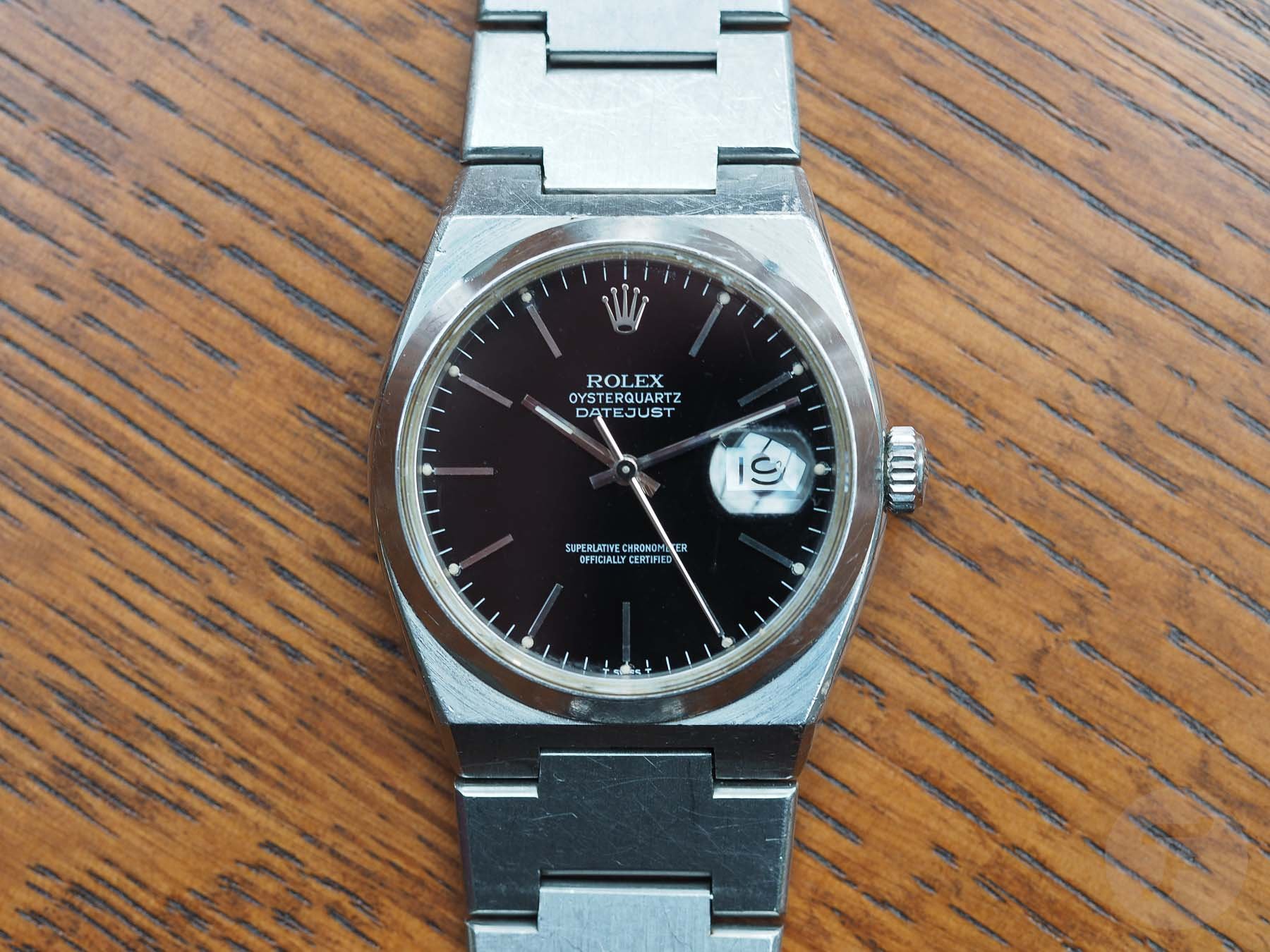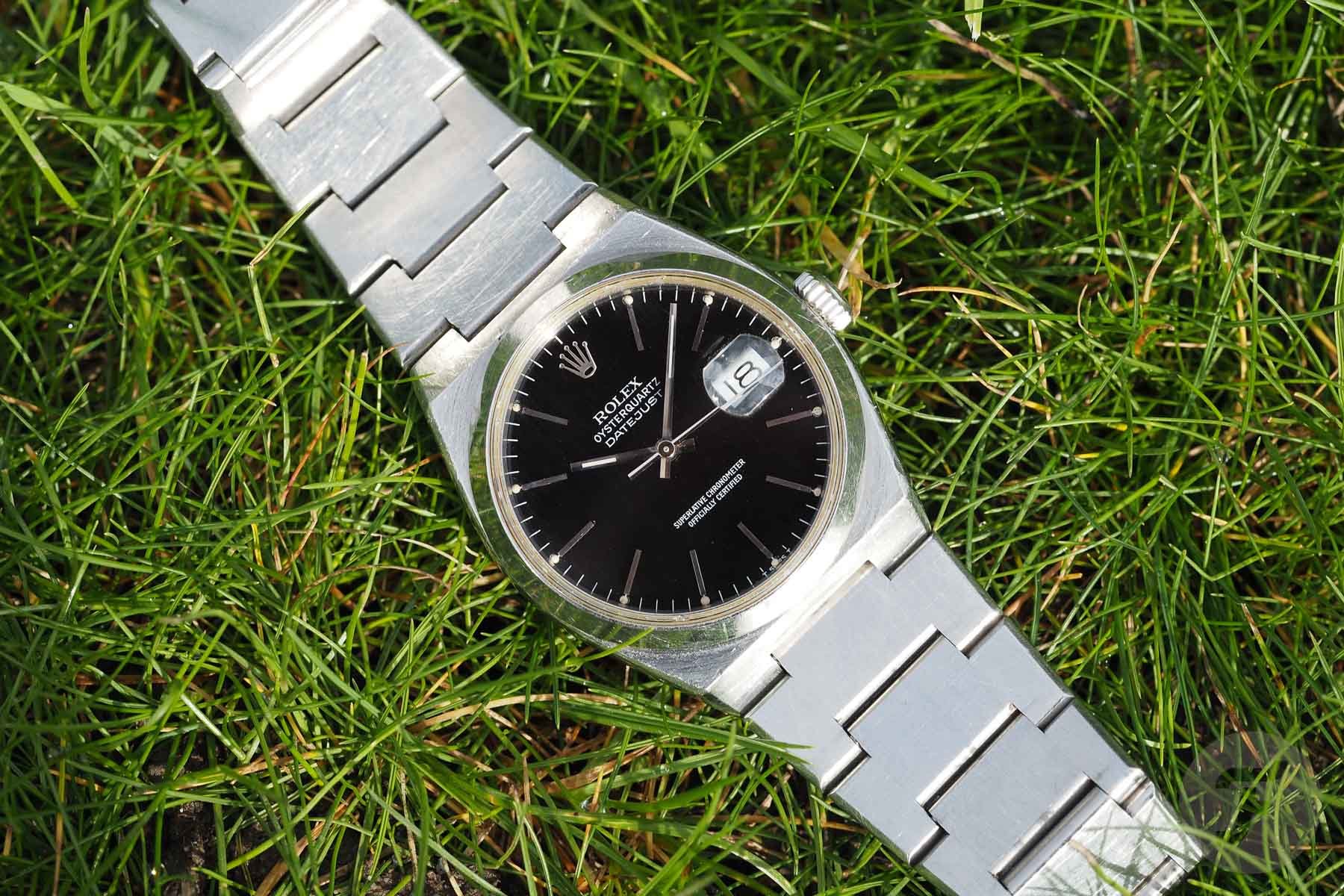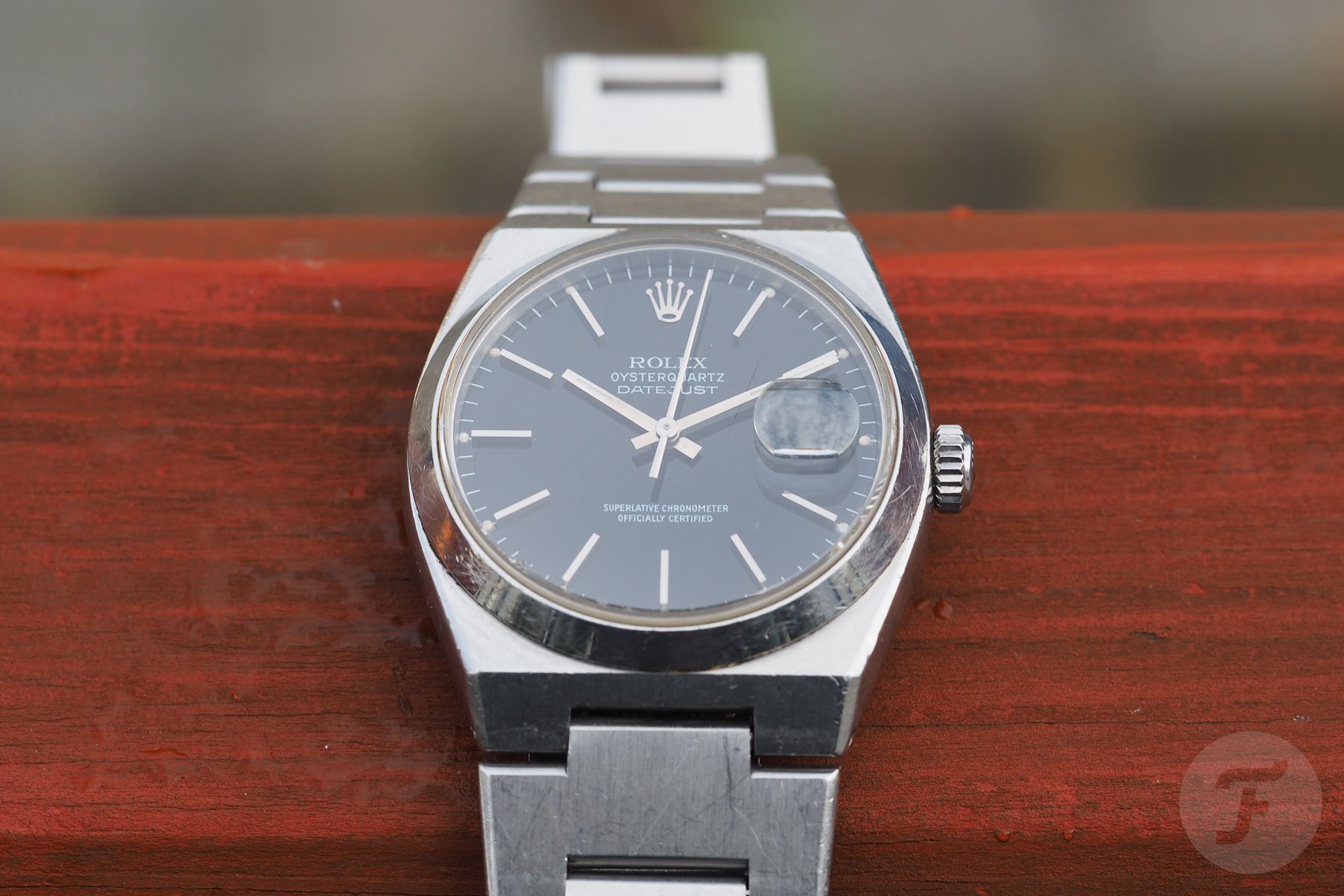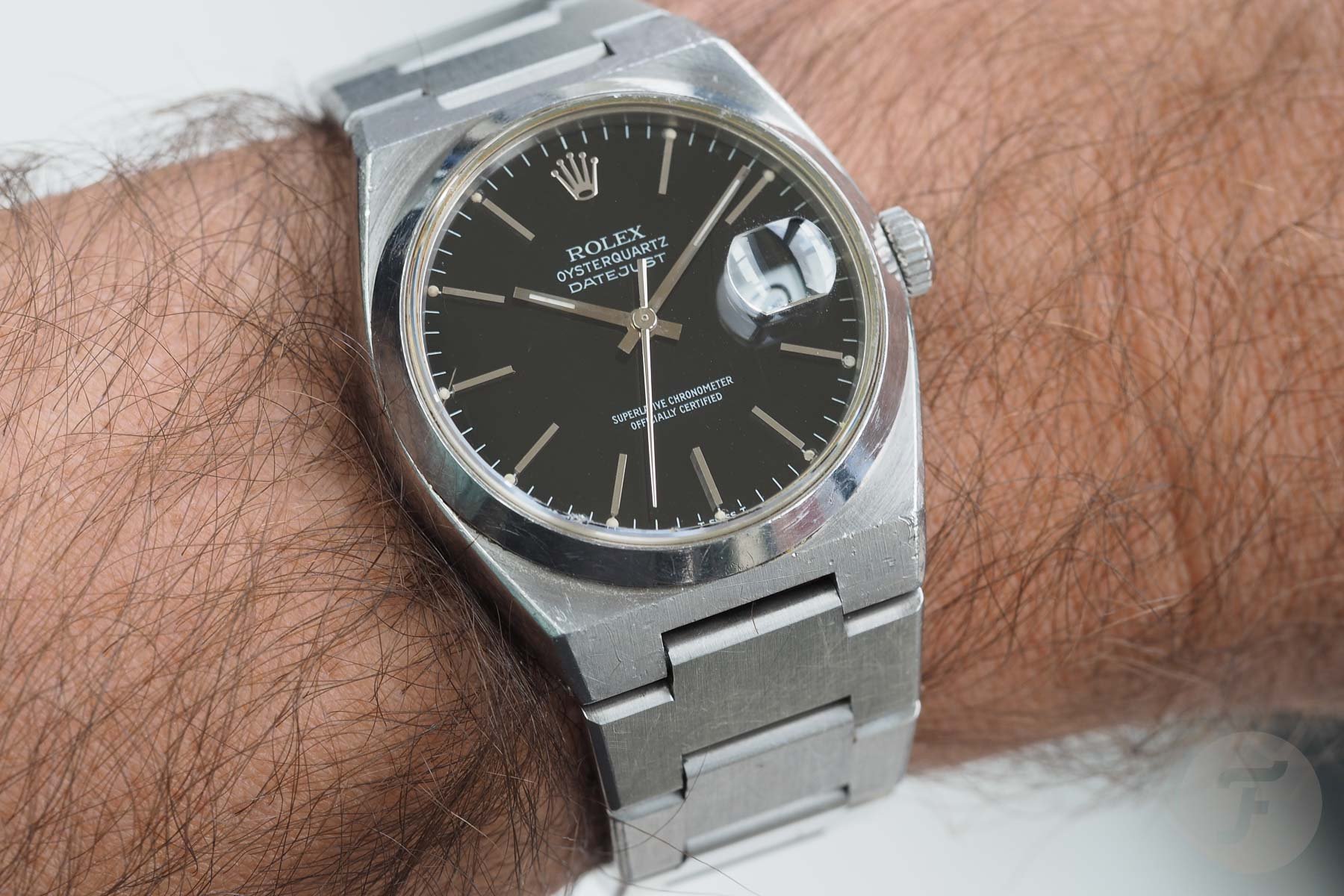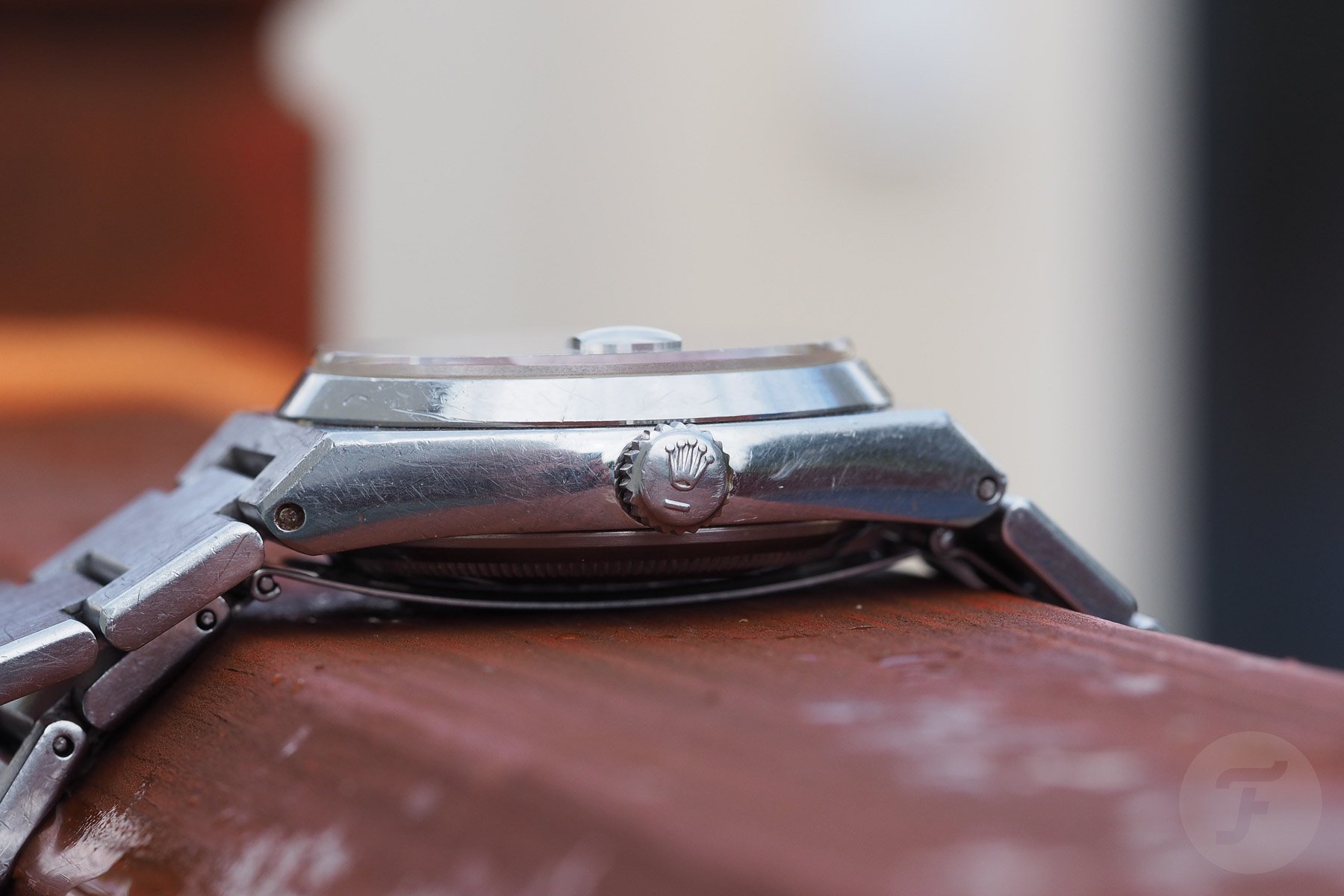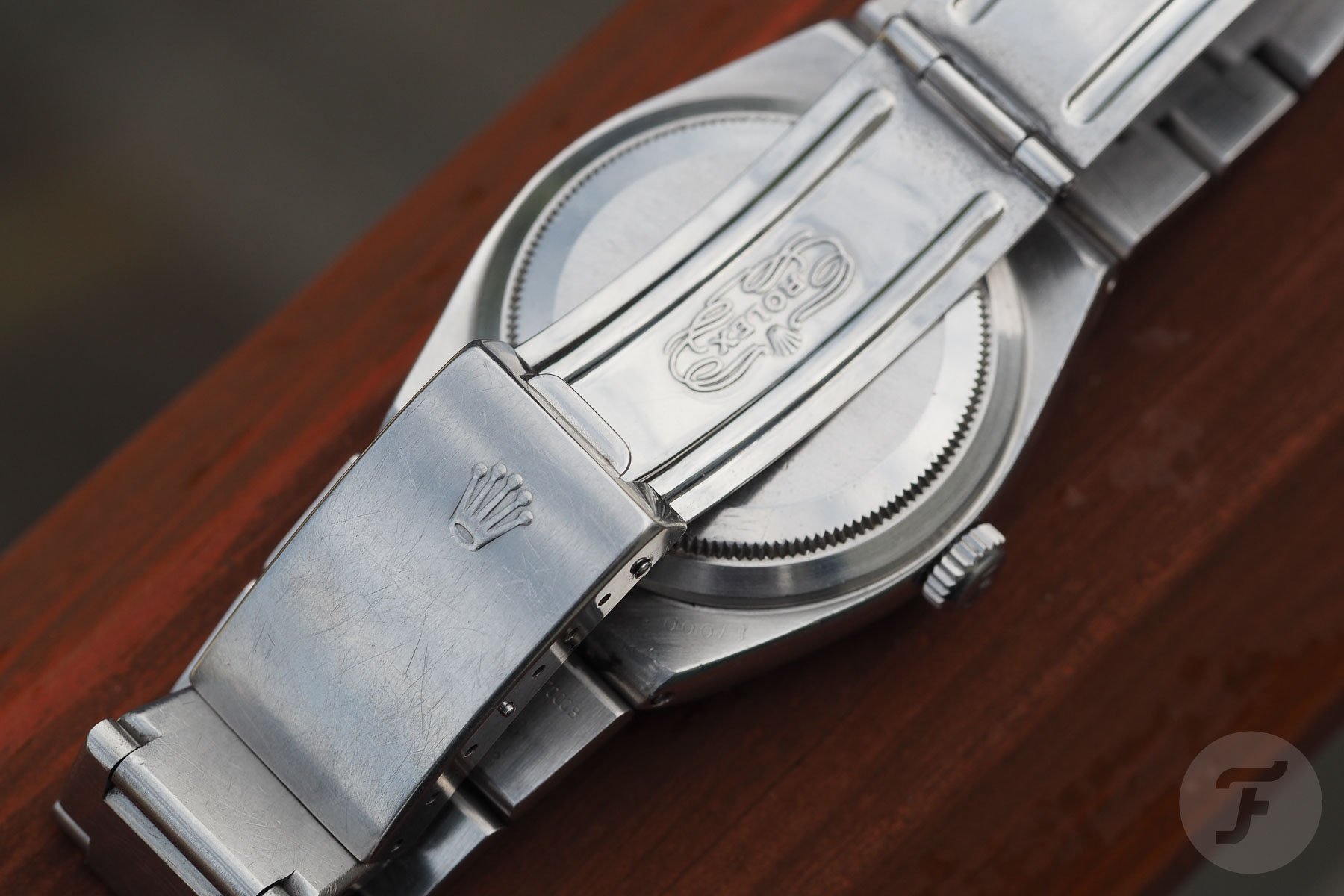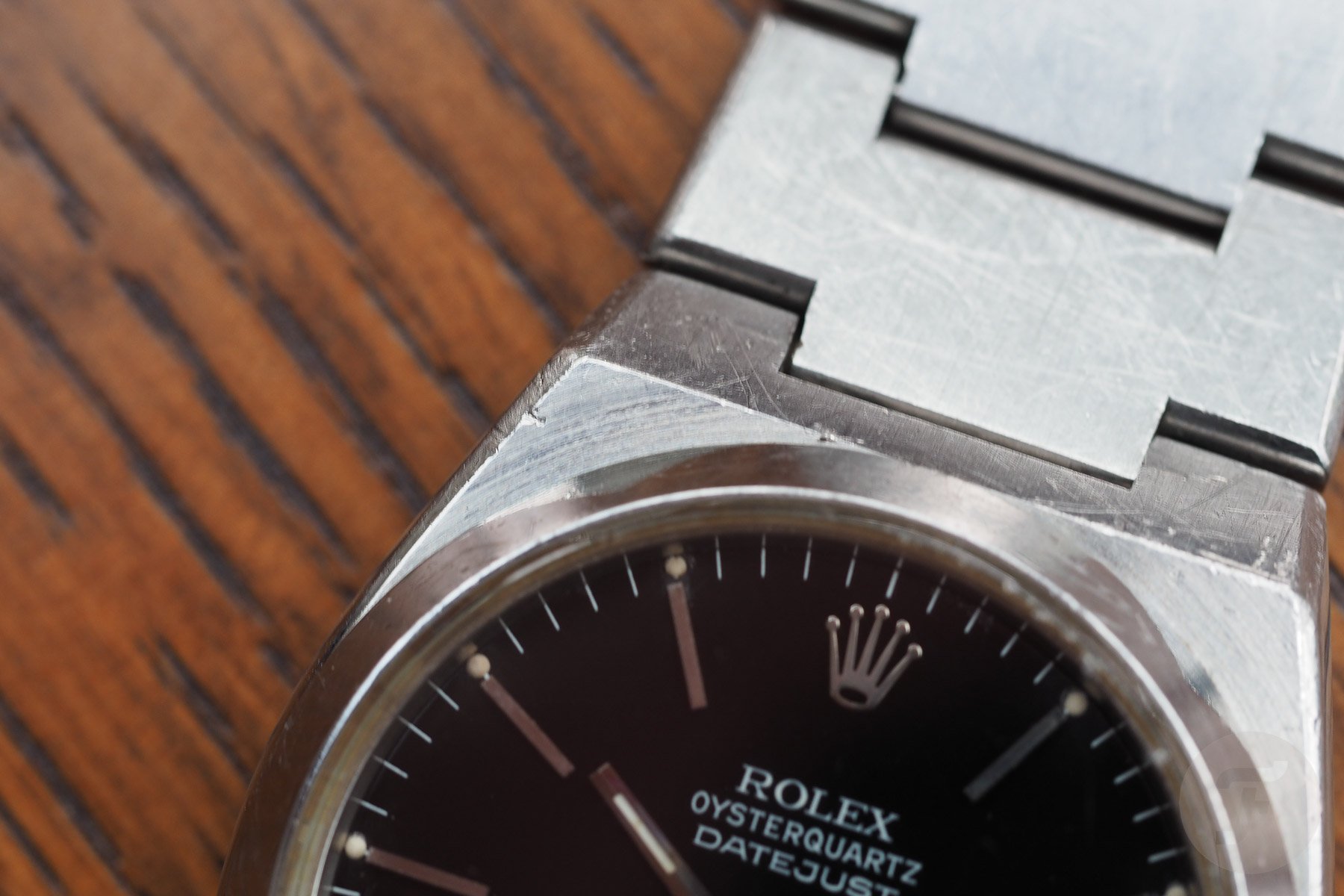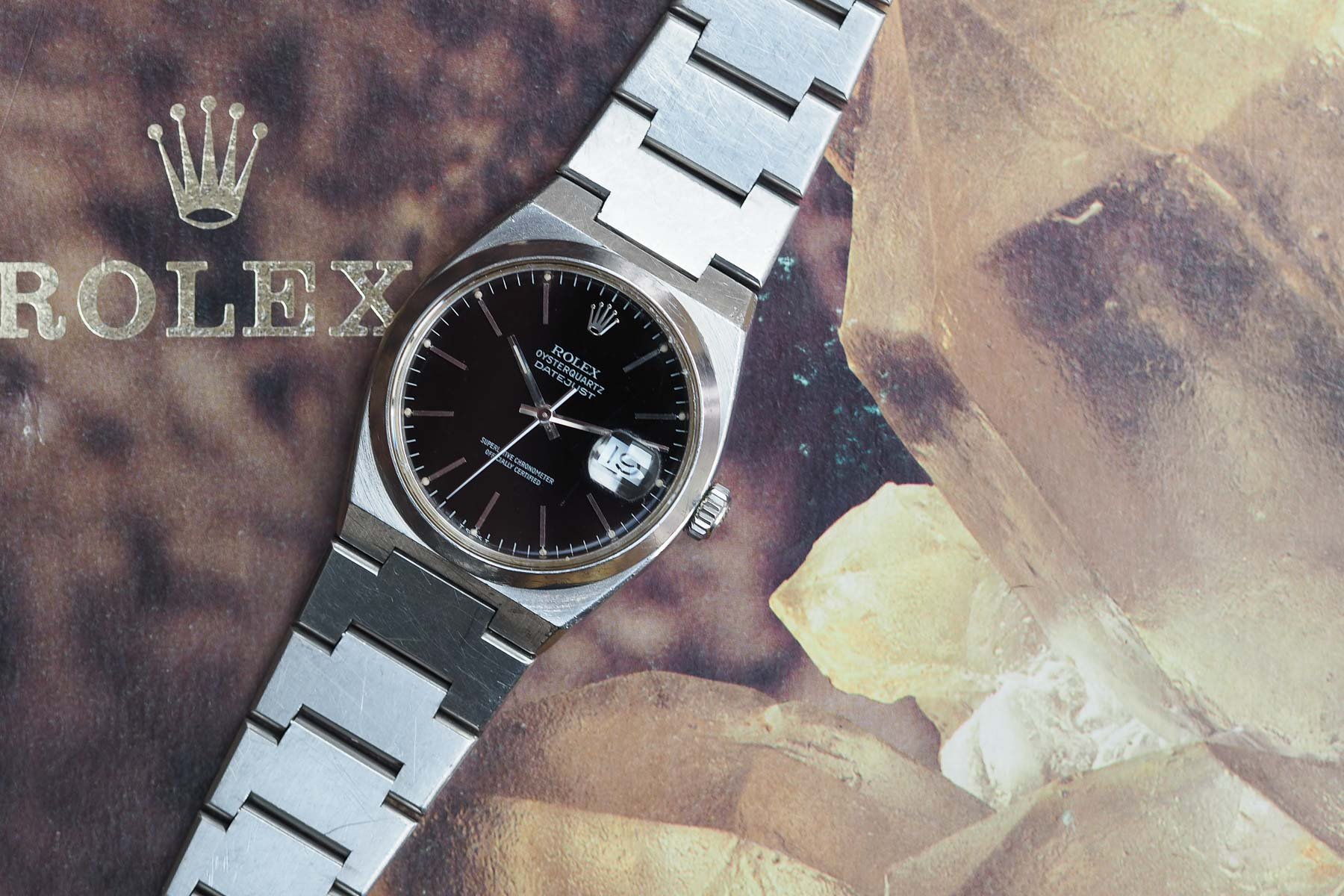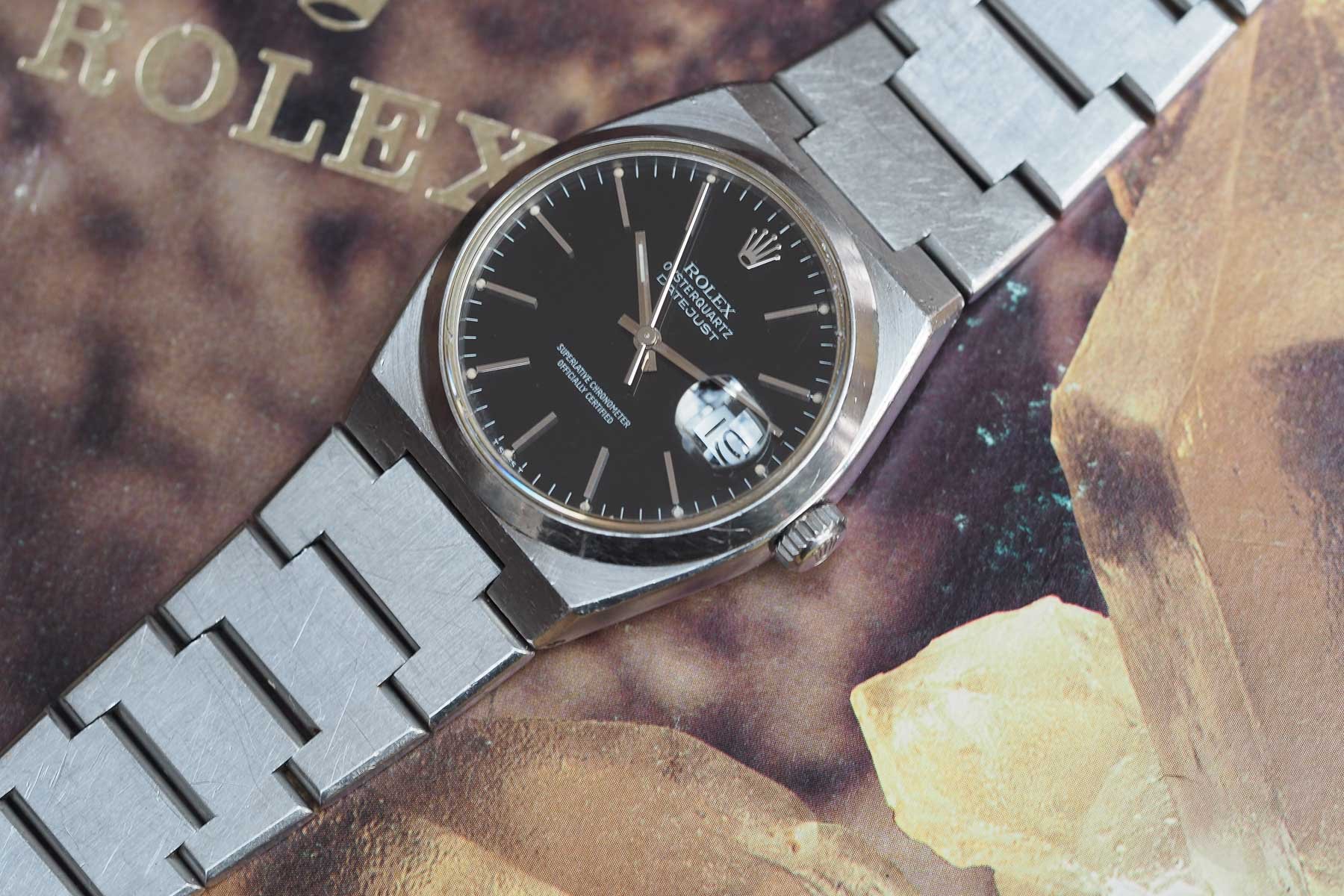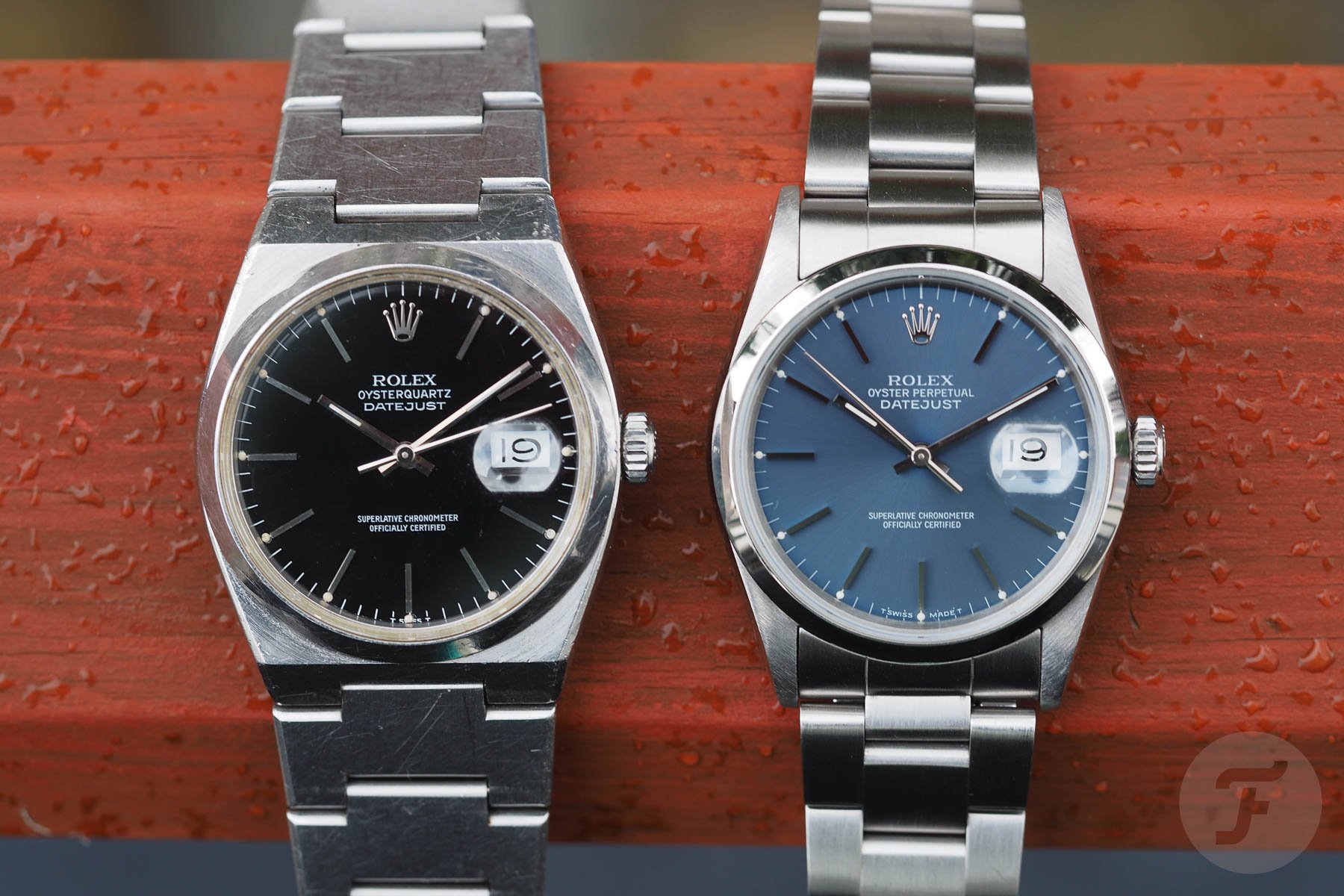Ticking Along With The Rolex Datejust Oysterquartz 17000
There’s little doubt in my mind that the Rolex Datejust Oysterquartz 17000 will always be an exception. After all, it’s a Rolex that ticks. Much like the rules of reading or arithmetic, we are taught that a Rolex simply doesn’t tick. These days, though, the Oysterquartz is all the rage perhaps because of its rebellious nature. Is it worth owning one of these watches, or is it better suited for a cabinet of curiosities? Let’s examine this oddball watch further.
Much has been said or written about the Oysterquartz. It has been featured in several articles here on Fratello, and our own Brandon wrote a lengthy article about its history and why the watch is so likable. I will spend a cursory amount of time on the history of this watch with more on why my feelings turned positive to the point that I acquired one. I think you’ll enjoy the backstory as well. Finally, is this watch worth the fierce praise it receives from its advocates? We shall see.
My history with Oysterquartz
I probably first became aware of the Oysterquatz in the late ’80s. My uncle was a successful businessman and always wore a gold watch. Upon his passing more than 20 years ago, I was fortunate enough to receive his early ’60s gold Seamaster. He was an interesting guy and worked primarily in the boating business. Whether it was office work or accompanying current or potential clients on fishing trips, he wore his Omega daily and put a lot of trust in its water resistance. At some point, before I even knew him, the watch must have leaked. I know this because my aunt had it restored before gifting it to me.
I don’t know when my uncle decided to put the Omega aside, but he chose a more modern and robust watch as its replacement. That watch was the Rolex Oysterquartz Day-Date 19018 in 18K yellow gold. Just like with the Omega, he wore the watch daily. I can still remember my dad joking with my uncle about his quartz Rolex and, frankly, looking down upon it versus mechanical versions. To be fair, my uncle wasn’t a “watch guy.” I think he simply found a quartz Rolex to be a no-fuss everyday watch with all the finery of a regular Day-Date. When my uncle passed away, this watch was sold to a jeweler and, frankly, wasn’t worth a whole lot at the time. With that story in mind, I grew up with little love for quartz and especially the thought of a quartz Rolex.
A change of heart regarding the Datejust Oysterquartz
It doesn’t take a lot of effort to hear the endless crowing about the Datejust Oysterquartz. Gerard has one, RJ has one, Balazs has one, and Brandon praised the watch heavily. And honestly, those plaudits are only what I am hearing from within Fratello’s four walls. Others also love these watches, and it was due to one such admirer that my feelings changed. On one of my trips to Wind Vintage in Palm Beach, Florida, Eric had a lovely silver-dialed Oysterquartz 17000. I purposely sought it out and was seriously impressed by how different the case was from a typical Oyster. Yet, somehow, the watch still looked and felt like a Rolex. It was tempting, but I chose a mechanical Rolex that day. Nevertheless, the idea of buying an Oysterquartz was beginning to take on the form of a slow burn.
Now, I’ve been into watches long enough that my passive desires for a piece often do not result in any action. That said, serendipity is a funny thing, and recently, it came in the form of a Datejust Oysterquartz. I had just moved to London, and it turned out that a watch contact lived in the area. Nick Boon — the subject of a 2020 Speedy Tuesday article — and I got in touch. To make the story even wilder, I had come across Nick because he randomly played golf with one of my best friends who has absolutely nothing to do with watches. In any case, we began meeting up for ale sessions and talked about watches and everything else.
A wild backstory
One day, I noticed a black-dialed Datejust Oysterquartz on Nick’s Instagram feed, and I may have even commented that I liked the watch. During the next session, he randomly brought up the watch when pointing out a local watchmaker’s shop. It was at this point that Nick informed me that the watch was owned by a really good friend of his…sort of. You see, Nick’s friend had received the Rolex nearly a decade before as collateral on a £1,500 loan to another good friend. That friend had since retired and hadn’t paid back the debt. Plus, the Rolex had stopped working. A quick service at the local dealer comprised cleaning the battery contact and checking the movement. This brought the Oysterquartz back to life. Afterward, the retired gentleman asked Nick’s friend to sell the watch. The friend would then send the proceeds to his retired friend less the £1,500.
While we were at the pub, Nick’s wife brought along the watch and sat down for a drink. It was a very cool, honest watch, and better yet, it had the original hang tag, box, and a load of paperwork. With a story like this and the watch in worn but unpolished condition, I told Nick that I was interested. Within a week, I had been in touch with Nick’s friend, agreed on a price, wired the money, and took delivery of the Datejust Oysterquartz.
The initial stages of ownership
When trends come about, I’m an admittedly slow follower. Skin-tight jeans? Yeah, I’m still not quite there yet. Apple Pay? Here in London, I still love my Oyster card in its 2012 Olympics wallet. Therefore, it shouldn’t surprise you that despite all the hullabaloo, I don’t own a sporty ’70s-style integrated-bracelet watch. I like them, but I don’t love them. Still, I’ve slowly warmed up to certain models, and the Oysterquartz Datejust is one such example.
Upon receiving the watch, I needed to size the Oyster-ish bracelet. This model dates to 1988, which was before the brand used screws in the removable links. Pin and collars in a Rolex? You bet, but at least they were reasonably easy to free up once I worked through the surface gunk. On the wrist, the Datejust Oysterquartz brings all the solidity of a normal Rolex in a slightly different package. The brand managed to build a wonderful bracelet and paired it with a typical clasp of the era.
Noticing the details
The Oysterquartz is a surprising piece on the wrist. It comes in at 13.5mm thick with a 36mm diameter. The blockier case design and plate-like bracelet make it look larger than the typical mechanical version. Additionally, the bulkier thickness adds size. Don’t confuse those comments with discomfort or ungainliness, though, because this watch is a comfortable looker.
When looking at a typical Oyster case, downward-flowing lugs are a typical characteristic. With the Oysterquartz, it feels more like a weird ’70s brutalist design. The case top is incredibly flat, it contains massive chamfers, and of course, there are the integrated end links. Interestingly, the case contains drilled lug holes despite the relative inability to fit a strap. It’s these holes and the chamfers that give us signs about whether the case has been polished. Yes, there is grime and wear here, but it seems that all is original.
Other points on the Datejust Oysterquartz
Rolex made the Datejust Oysterquartz in a few different variants from 1977 to 2001. The ref. 17000 you see here was the most basic version and came in stainless steel with a simple stainless bezel and Oyster-style bracelet. A two-tone 17013 was made with an 18K yellow gold fluted bezel, gold crown, and Jubilee bracelet. Finally, the 17014 came in stainless steel with an 18K white gold fluted bezel and Jubilee bracelet. Perhaps due to the limited production of these watches, Rolex chose not to give its customers an infinite number of dial color options. Silver, black, blue, and champagne with stick indexes were available alongside a white “Buckley” variant with printed Roman numerals. The darker dials seem less common, but this is my non-scientific observation after scrolling through ads.
I tend to collect dark-dialed Datejust models, so either black or blue would have been my choice. Furthermore, I’m a fan of the smooth-bezel models, so this reference 17000 was perfect. Note the lack of Roman numerals on these dials and how unadorned they are versus most typical Datejust models. I love that aspect of these watches and am thankful that Rolex kept a clean look to complement the similarly straightforward case design. As an aside, I was curious if these watches were more expensive than their mechanical counterparts. I’m not sure about the early years, but I found prices to be similar in the original Rolex catalogs. At times, the Oysterquartz was slightly more, the same, or a bit less.
The 5035 movement
Of course, the heart of the Datejust Oysterquartz is its movement. The Rolex caliber 5035 is the subject of much adoration by a rather fervent group of fans. There are several good reasons for this. It’s a highly finished 11-jewel movement with quite a bit of technology. For the ’70s, this was a properly advanced watch. Believe it or not, aside from its electronics, the 5035 was based on the well-known 3035 automatic caliber. Furthermore, it contained thermocompensation technology, which allowed it to function accurately over a wide range of temperatures (Reinhold Messner famously wore an Oysterquartz to the top of Everest in 1978). The movement is adjustable and, after initial production, achieved chronometer certification. There are plenty of articles about this movement, but here’s a nice page dedicated to these watches. By far, the coolest part of this movement is that it drives the seconds hand to tick exactly once per second. It’s so clean (and loud!) but so cool.
Packaging worth mentioning
I mentioned that my Datejust Oysterquartz 17000 came with its original boxes. Normally, I don’t spend much time documenting packaging, but in this case, it’s worth the words. First, the watch came in a padded box (not sure if it is leather), which reminds me more of the higher-end gold Rolex watches from the era. The most fascinating discovery, though, is the set of outer boxes. Nick and I were both flummoxed as neither of us had ever seen a set like this. The boxes contain a photo setting of natural quartz crystals on them. I spent a good bit of time doing some internet sleuthing, and I found exactly one watch in an older listing with an identical set. If anyone has more info, feel free to share it in the comments section.
Values and the future
I started this article by stating that the Rolex Datejust Oysterquartz is currently a popular watch. Sporty integrated-bracelet models from the ’70s are in, and that has led to renewed interest in these eccentric models. One look at the stylistically similar Tissot PRX also explains their surge. The result is that prices are no longer laughably low. In general, I see prices anywhere from €4,000 to €7,000. The condition is crucial, especially because so many have been polished. Some, including me, have been worried about getting these serviced should a problem arise. I’m not an expert on the subject, but several knowledgeable folks have mentioned that Rolex has quite a few spares on hand, so the risk of obsolescence should be fairly low. Then again, changing the battery on time and using good batteries should help stave off issues.
Will the Datejust Oysterquartz have staying power and increase in desirability as time marches forward? I tend to think so, although I’m not sure I ever see it becoming the next Royal Oak or Nautilus. If Rolex reintroduced a quartz model using a similar form, it would drive more interest in the old ones, but that seems doubtful.
The verdict on the Oysterquartz Datejust
So, is it worth owning an Oysterquartz Datejust? I think so for several reasons. It’s a Rolex, and it feels like one, which means it’s well built, comfortable, and reliable. Next, it’s different than 99.9% of the Rolex models you’re likely to encounter, which is seriously fun. There’s also the fact that it’s such an easy watch to grab at a moment’s notice. Finally, I like it because it’s weird and feels like a time-warp watch, though it was at the absolute top of its game when it debuted. With all of that said, I still do tend toward mechanical watches all day, every day, and twice on Sundays. But, hey, sometimes serendipity strikes!

